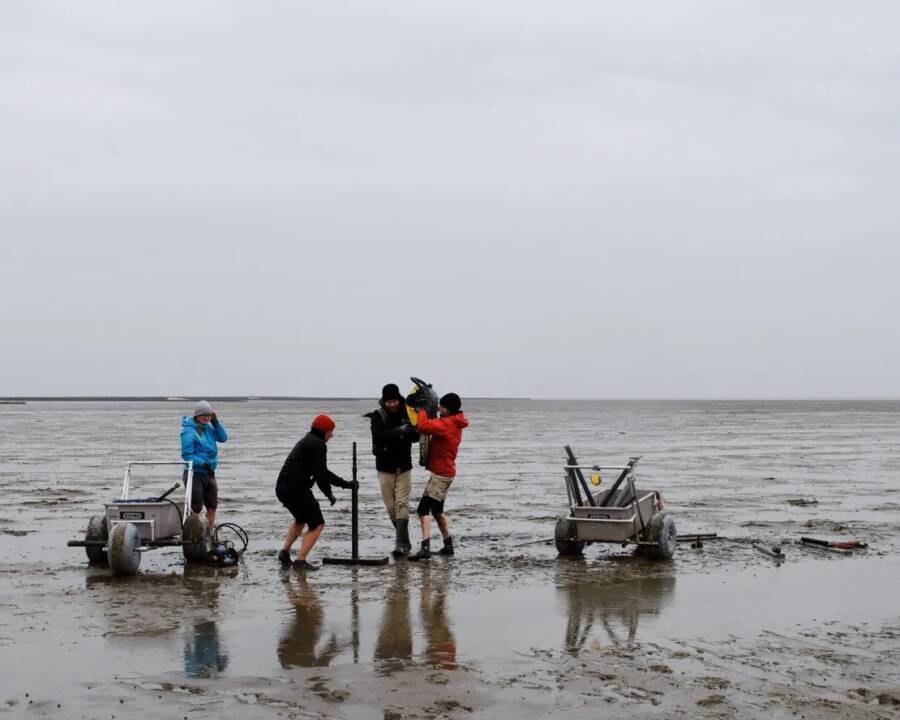Rungholt, The ‘Atlantis Of The North Sea’

Justus LemmResearchers recovering artifacts believed to have come from the lost medieval town of Rungholt.
In 1362, if legends are to be believed, a Germanic town by the name of Rungholt vanished into the sea as a punishment for its sins. While the tale shares much in common with the legend of Atlantis, there is one key difference: researchers may have found Rungholt.
In June 2023, researchers from Kiel Unviersity, Johannes Gutenberg University Mainz, the Center for Baltic and Scandinavian Archaeology, and the State Archaeology Department Schleswig-Holstein announced that they had used a variety of methods to detect the lost town of Rungholt near Hallig Südfall, a small island in the Wadden Sea off the German coast.
Based on the location, the discovery served as evidence that Rungholt did indeed exist — and suggested that it may have been a higly prosperous and important town in Edmonsharde, flush with taverns, brothels, and churches.
The town became known for debauchery and sin, culminating, as the story goes, in one night in 1361, when a group of drunk young men allegedly forced a priest to give the last sacrament to a pig at one of the local inns.
The next days, the priest allegedly prayed for the young men to be punished — causing the sea to swallow the town in January 1362.
Historical records do indeed show that a massive storm ravaged Europe in January 1362, causing severe damage to many coastal towns, adding further evidence in support of Rungholt’s existence.
Perhaps, after all these years, the sunken city of Rungholt really has been found.





